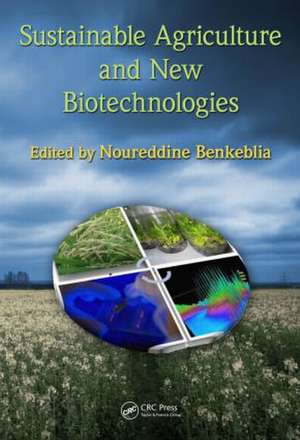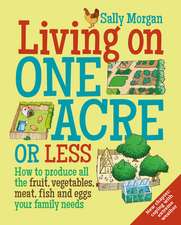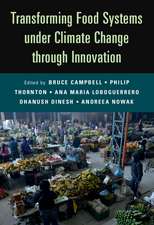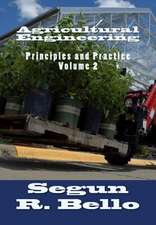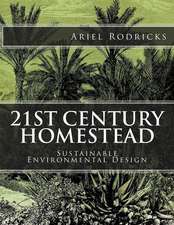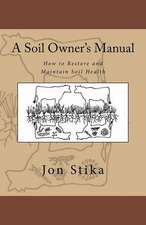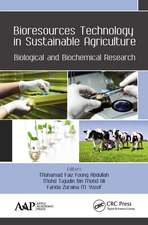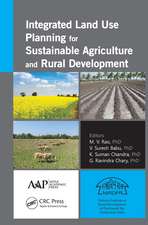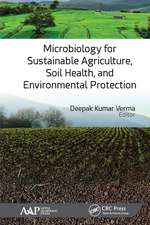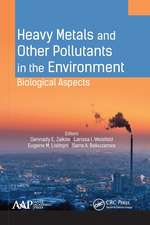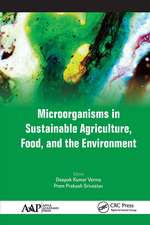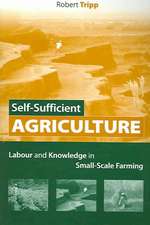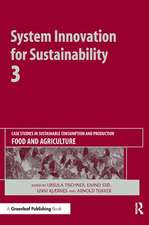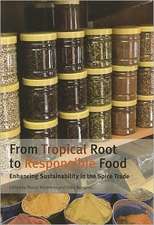Sustainable Agriculture and New Biotechnologies
Editat de Noureddine Benkebliaen Limba Engleză Hardback – 11 iul 2011
- The use of new biotechnologies to help in the creation of more sustainable agricultural practices, including methods in molecular biology, genetic engineering, and the new emerging technologies, such as metabolomics, metagenomics, nutrigenomics, and ionomics
- The path to reach the goal of the global sustainable agricultural and food production systems in a world of limited natural resources and growing environmental degradation
- Principles that regulate the new agricultural and food production systems including breeding programs for more sustainable crops, soil management, and environment preservation
It is clear that biotechnological approaches will become increasingly important in the future and that a shift from industrial to a sustainable agriculture will be necessary. While many books tend to make "a quick and easy link" between these two different worlds, Sustainable Agriculture and New Biotechnologies describes exactly how omics can contribute to greater food productivity and security, and agricultural sustainability in the future.
| Toate formatele și edițiile | Preț | Express |
|---|---|---|
| Paperback (1) | 461.03 lei 43-57 zile | |
| CRC Press – 7 oct 2019 | 461.03 lei 43-57 zile | |
| Hardback (1) | 1299.36 lei 43-57 zile | |
| CRC Press – 11 iul 2011 | 1299.36 lei 43-57 zile |
Preț: 1299.36 lei
Preț vechi: 1584.60 lei
-18% Nou
Puncte Express: 1949
Preț estimativ în valută:
248.63€ • 260.29$ • 205.73£
248.63€ • 260.29$ • 205.73£
Carte tipărită la comandă
Livrare economică 07-21 aprilie
Preluare comenzi: 021 569.72.76
Specificații
ISBN-13: 9781439825044
ISBN-10: 1439825041
Pagini: 556
Ilustrații: 57 b/w images and 35 tables
Dimensiuni: 178 x 254 x 30 mm
Greutate: 1.22 kg
Ediția:New.
Editura: CRC Press
Colecția CRC Press
ISBN-10: 1439825041
Pagini: 556
Ilustrații: 57 b/w images and 35 tables
Dimensiuni: 178 x 254 x 30 mm
Greutate: 1.22 kg
Ediția:New.
Editura: CRC Press
Colecția CRC Press
Public țintă
Professional Practice & DevelopmentCuprins
The Use of Omics Databases for Plants. High-Throughput Approaches for Characterization and Efficient Use of Plant Genetic Resources. Breeding for Sustainability: Utilizing High-Throughput Genomics to Design Plants for a New Green Revolution. Transcription Factors, Gene Regulatory Networks, and Agronomic Traits. Contribution of "Omics" Approaches to Sustainable Herbivore Production. Mining Omic Technologies and Their Application to Sustainable Agriculture and Food Production Systems. Identification of Molecular Processes Underlying Abiotic Stress Plants Adaptation Using "Omics" Technologies. Rhizosphere Metabolomics: A Study of Biochemical Processes. Microbial Functionality and Diversity in Agroecosystems: A Soil Quality Perspective. Survey in Plant Root Proteomics: To Know the Unknown. Applications of Agricultural and Medicinal Biotechnology in Functional Foods. Nutritional Genomics and Sustainable Agriculture. Metabolomics: Current View on Fruit Quality Relation with Human Health. New Farm Management Strategy to Enhance Sustainable Rice Production in Japan and Indonesia. Advances in Genetics and Genomics for Sustainable Peanut Production. The Relevance of Compositional and Metabolite Variability in Safety Assessments of Novel Crops. Gene-Expression Analysis of Cell-Cycle Regulation Genes in Virus-Infected Rice Leaves. Transcriptomics, Proteomics and Metabolomics: Integration of Latest Technologies for Improving Wheat Productivity in Future. Impact of Climatic Changes on Crop Agriculture: OMICS for Sustainability and Next-Generation Crops. Designing Oilseeds for Biomaterial Production. Bioenergy from Agricultural Biowaste: Key Technologies and Concepts. Index.
Notă biografică
Noureddine Benkeblia, Department of Life Sciences, University of the West Indies Mona Campus, Kingston 7, Jamaica
Descriere
Focusing on the use of new biotechnologies to create more sustainable agriculture within the framework of global environmental changes, this book is the first reference to highlight related developments in molecular biology and genetic engineering. It discusses new emerging technologies such as metabolomics, metagenomics, nutrigenomics, and more recently ionomics and their translation to agricultural research and productive technologies. An international team of experts from 16 countries presents concrete examples of the use of omics technologies in food production systems and their application to soil-plant-environment interactions.
